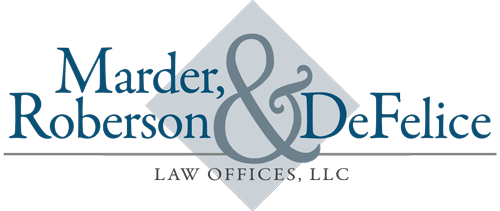This information was prepared by Attorney Karen Elise Robbins.
In Connecticut, the terms conservator and guardian are not interchangeable. A conservator is “a person appointed by the Probate Court to oversee the financial and/or personal affairs of an adult who is determined by the Probate Court to be incapable of managing his or her finances or unable to care for himself or herself. A conservator may also be appointed for a person who voluntarily requests such assistance.”  A guardian, however, is an individual who legally can make decisions for a minor under the age of eighteen. The Probate Court may appoint a guardian for someone over the age of eighteen with intellectual disabilities that were identified before the age of majority.
There are two types of Conservatorships:
- A conservator of the person makes health care decisions, determines living arrangements, controls activities of daily living and essentially controls everything except for the finances of the conserved person.
- A conservator of the estate takes care of the conserved person’s financial affairs. It is rare to have a conservator of the person without also having a conservator of the estate.
The Parties to a Conservatorship include:
- The Petitioner – the person who applies to the Probate Court to act as the conservator for the person they believe requires assistance.
- The Respondent – the person who the petitioner wishes to have conserved.
Conservatorships in Connecticut can be Voluntary or Involuntary:
- Involuntary conservatorship uses a clear and convincing standard. The Probate Court is very protective of taking away the rights of any individual and will always look for the least restrictive option in order to maintain the Respondent’s independence. The Court will appoint an attorney for the Respondent to protect their best interests throughout the Court proceedings.
- Voluntary conservatorship is entered into willingly by the Respondent and can be cancelled by the conserved party at any time by providing 30 days’ notice to the Court. Complicating matters, however, is that people who choose voluntary conservatorship frequently change their minds and often require further Court proceedings if an involuntary conservatorship is necessary. This process incurs additional expense and delay. It follows, that unlike Connecticut, many states do not permit voluntary conservatorships.
Procedures to Obtain Involuntary Conservatorship:
- To involuntarily conserve an individual, the Petitioner must file an application for Conservatorship with the appropriate Probate Court. There are specific Probate Forms which must be completed by the Petitioner or their Attorney. The Petitioner must also file a specific medical form which has been completed by a physician who has examined the Respondent within forty-five days prior to the application.
- The Petitioner must have a State Marshall serve the Respondent with papers at least ten days before the hearing.
- The Court will send a Notice of Hearing to the Spouse or Children of the Respondent if they are not ones requesting the involuntary conservatorship.
Temporary Conservatorship:
In emergent situations, a temporary conservator may be appointed by the Court at the request of someone with an interest in the welfare of the Respondent. In such a case, this Petitioner must have a physician examine the Respondent and file the medical report within three days of the filing of the petition for temporary conservatorship. There are specific timelines that the parties and Court must follow, but typically a hearing will be heard within seven business days. If waiting for a hearing would put the Respondent in “immediate and irreparable” danger, a Petitioner can file for an “ex parte” temporary conservatorship. This alternative appoints the conservator without a hearing, but the Court must hold a hearing on the matter within three business days. A temporary conservatorship will expire thirty days after it is granted unless the Petitioner takes legal steps to extend it.
Other Options:
With advanced planning, the need for a Court appointed conservator may be avoided all together. It is prudent to meet with an elder law/estate planning attorney to execute a Durable Power of Attorney (to choose who will manage one’s financial affairs in the case of incapacity) and an Appointment of Health Care Proxy and Living Will (to determine who will manage one’s health care decisions and specify wishes regarding potential treatment). One can even designate a specific person as a conservator should one become necessary. The above documents MUST be completed while one has the mental capacity to do so. If there is questionable or lack of mental capacity an attorney ethically cannot execute these documents, and the involvement of the Probate Court will be needed to request an appointment of conservator. A conservatorship involves the ongoing additional costs of required accountings to the court as well as the need to obtain court approval for many financial and day to day transactions. Advanced planning saves stress and greatly reduces financial costs.
